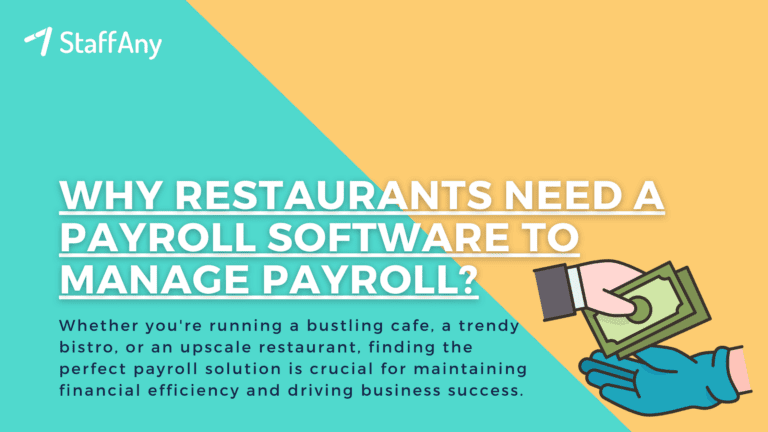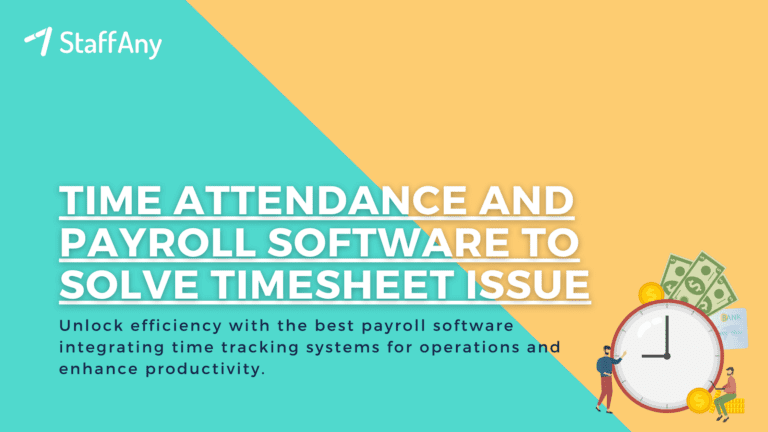Effective staff scheduling is essential to the success of any organisation. It is vital to ensure that all shifts are covered, and that staff are scheduled in such a way that allows for optimal productivity, efficiency, and employee satisfaction. Scheduling staff can be a complex task, particularly if you’re trying to balance a range of factors, such as availability, skill set, and workload.
In this article, we will explore 11 factors to consider when scheduling staff and planning your roster. Let’s find out below!
11 Factors to Consider When Scheduling Staff
Scheduling staff is an essential task that requires careful planning and consideration of various factors. Here are 11 key factors to keep in mind when scheduling your staff:
1. Availability
The availability of your staff is a crucial factor to consider when scheduling them. Ensure that you know the days and times when each employee is available to work, including any specific preferences they may have regarding shifts. By taking into account employee availability, you can ensure that all shifts are covered and minimise the likelihood of scheduling conflicts.
Read more: A Comprehensive Guide on Shift Work Schedule Management in the F&B Industry
2. Skills
When scheduling staff, it’s essential to consider the skills and qualifications of each employee. Ensure that you have enough staff with the right skills to cover all shifts and tasks required. By scheduling staff based on their skills and experience, you can increase productivity and efficiency and reduce the likelihood of errors or mistakes.
3. Workload

Determine the workload for each shift and ensure that you have enough staff scheduled to handle the workload. Overworking your employees can lead to burnout, which can result in decreased productivity and high turnover rates. By balancing the workload across your team, you can ensure that everyone has a manageable workload and reduce the risk of burnout.
4. Employee Preferences
Consider the preferences of your employees when scheduling them. Some employees may prefer certain shifts, while others may want to avoid working specific days. By accommodating employee preferences, you can increase employee satisfaction and reduce the likelihood of staff turnover. When employees feel that their preferences are being taken into account, they are more likely to be engaged and motivated at work.
5. Time-Off Requests
Ensure that you are aware of any time-off requests submitted by your staff when scheduling them. This will help you to avoid scheduling conflicts and ensure that all shifts are covered. By proactively managing time-off requests, you can minimise disruptions to your schedule and maintain productivity levels.
6. Labour Laws

Compliance with labour laws and regulations is critical when scheduling staff. These laws dictate the maximum number of hours an employee can work in a day or week, as well as minimum rest periods and breaks. Ensure that you are familiar with the labour laws and regulations applicable to your business and that you are scheduling staff in compliance with them.
7. Budget
Keep your budget in mind when scheduling staff. Ensure that you are scheduling the right number of staff to cover all shifts, without exceeding your budget. By optimising your staff schedule to meet your budget requirements, you can minimise labour costs and ensure that your business remains financially viable.
Read more: Understanding Why Time Management is Important for Your Business
8. Employee Experience
Consider the experience level of your employees when scheduling them. More experienced staff members may be better suited to handle more complex tasks, while less experienced employees may require additional support and training. By scheduling staff based on their experience level, you can ensure that everyone is working in roles that match their skills and capabilities.
9. Staff Diversity

Consider the diversity of your staff when scheduling them. Ensure that you are not discriminating against any employee based on their age, race, gender, or other personal characteristics. By promoting diversity and inclusion in your staff scheduling practices, you can create a more inclusive and equitable workplace.
10. Communication
Effective communication is essential when scheduling staff. Ensure that your staff is aware of their scheduled shifts in advance. This will allow them to plan their personal lives around work and reduce the likelihood of scheduling conflicts. By maintaining open and transparent communication with your staff, you can foster a positive and productive work environment.
11. Flexibility
Be open to making changes to the roster when necessary. Emergencies and unexpected events can arise that require a shift in your scheduling plans. By being flexible and adaptable, you can ensure that all shifts are covered and that your business remains productive and efficient.
Effective staff scheduling requires careful consideration of various factors, including availability, skills, workload, employee preferences, time-off requests, labour laws, budget, employee experience, staff diversity, communication, and flexibility. By taking into account these 11 factors, you can create a staff schedule that meets the needs of your business, your employees, and your customers.
Read more: Current Facts and Trends in the F&B Industry in Malaysia
StaffAny: Your Staff Scheduling Solution
Scheduling staff can be a daunting task, especially for large organisations. Fortunately, there are several software solutions available that can help you streamline the process and reduce the likelihood of scheduling conflicts.
One such solution is StaffAny, a cloud-based scheduling software that allows you to manage your staff schedules and rosters with ease. With StaffAny, you can easily create and edit schedules, view staff availability and preferences, and receive real-time notifications when scheduling conflicts arise. Contact us to see how StaffAny can streamline your scheduling and rostering process!











